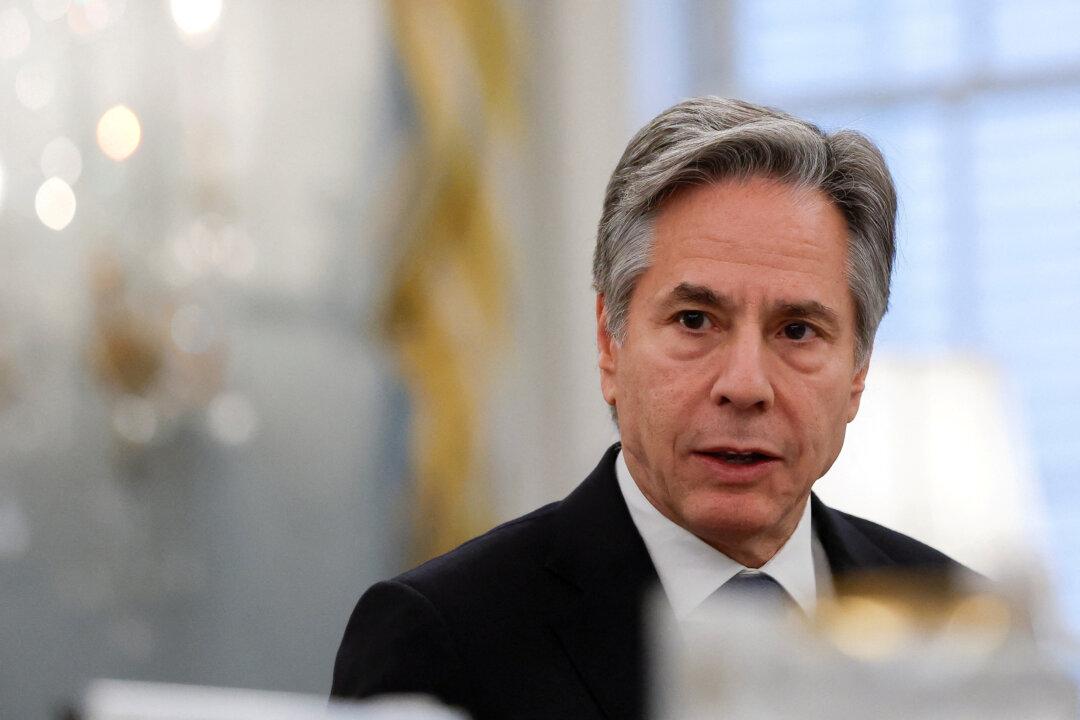The United States has imposed sanctions on two mid-level Chinese officials and several entities deemed responsible for suppressing Uyghurs with “serious human rights abuses in Xinjiang,” the region in western China where U.S. authorities said genocide is taking place.
The Chinese officials named by U.S. authorities are Hu Lianhe, the vice head of the Xinjiang Work Coordination Small Group of the Central Committee that has been instrumental in implementing Beijing’s Xinjiang policies, and Gao Qi, the deputy chief of the Yili region’s vice governor and former leader of the local public security bureau.
The two are now under concurrent sanctions from the State and Treasury Departments in accordance with the Uyghur Human Rights Policy Act of 2020 signed into law that May.
The sanctions unveiled on Dec. 8 were part of a coordinated action with the United Kingdom and Canada targeting 37 individuals in 13 countries to mark International Human Rights Day.
“Our commitment to upholding and defending human rights is sacrosanct,” said Secretary of the Treasury Janet Yellen. “Abuses of human rights and fundamental freedoms—wherever they occur in the world—strike at the heart of our shared humanity and our collective conscience.”
She added that the targeted sanctions “underscore the seriousness of our commitment to promoting accountability for human rights abuse and safeguarding the U.S. financial system from those who commit these egregious acts.”
Secretary of State Antony Blinken similarly described the actions as an effort for the United States to address “the most challenging and harmful forms of human rights abuses in the world, including those involving conflict-related sexual violence, forced labor, and transnational repression.”
In conjunction with the measures, the Department of Homeland Security’s Forced Labor Enforcement Task Force put on entity list three Chinese firms in the region, restricting their imports over forced labor practices involving Uyghurs, Kazakhs, and other persecuted groups in Xinjiang.
State-owned COFCO Sugar Holding, one of the largest sugar traders in China, has participated in the state-directed poverty alleviation campaign and worked with local Chinese officials to source laborers from persecuted groups, the Homeland Security authorities noted.
The press release on Friday noted that COFCO has visited the homes of targeted minorities in Xinjiang villages to recruit workers in its factories.
The company has recently held a conference where an official charged with strengthening Party loyalty from China’s State Council gave a talk. The official, Wu Xinming, congratulated the success of the conference and praised the company for “always adhering closely to its political responsibility” and carrying out guidelines from the Party.
Sichuan Jingweida Technology Group, a producer of magnetic devices such as network filters, power transformers, and radio frequency filters headquartered in Sichuan Province, was also on the list for taking persecuted ethnic minorities from the local county of Awati as its workers.
The third Chinese firm named was Anhui Xinya New Materials from Anhui Province in eastern China, which specializes in making functional fibers and textile materials based on hemp, cotton, wool, and Tencel.
Like the other two firms, it has triggered the sanction for using Uyghur forced labor—from Pishan County in Xinjiang.
Border officials have reviewed over 6,000 shipments with a value of more than $2 billion under the Uyghur forced labor law, ultimately denying about 2,600.
Secretary of Homeland Security Alejandro Mayorkas said his department remains committed to “eradicating the use of forced labor,” and that they will “continue to pursue companies that ignore the law and exploit those abused in the People’s Republic of China.”
But some critics say that the Friday actions are far from enough.
“While we welcome this news, the Biden Administration has dragged its feet to implement sanctions under the Uyghur Human Rights Policy Act (UHRPA) for far too long,” read a joint statement from Rep. Mike Gallagher (R-Wis.), chairman of the House Select Committee on the Chinese Communist Party, and Sen. Marco Rubio (R-Fla.).
They called for the sanction of another Chinese communist official, Ma Xingrui, who is the Party chief of Xinjiang and a member of the Politburo, the top decision-making body in China.
The membership at Politburo shouldn’t shield Mr. Ma from U.S. targeted sanctions, the two lawmakers said.







